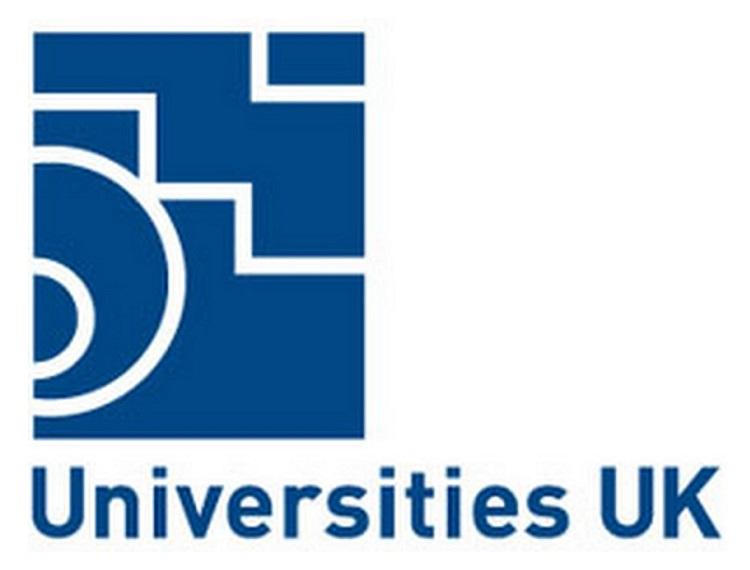Universities asked to take action against online harassment

Universities UK [UUK] has today published new guidance to help universities prevent and respond to all forms of online harassment. UUK, working together with the University of Bedfordshire, has developed Changing the Culture: Tackling online harassment and promoting online welfare as an extension of UUK’s work to help universities tackle harassment, hate crime and gender-based violence.
Social media has a near-universal reach among 16-24 year olds in the UK, with 99% claiming to use it at least weekly (OfCom). According to Ditch the Label’s annual bullying survey*, 69% of all respondents said they had been abusive towards another person online.
While carrying out research for this guidance many universities highlighted the inherent complexity of addressing online harassment as various social media platforms are used extensively by students as part of everyday life.
The guidance includes principles and recommendations for universities including:
- moving accountability for tackling online harassment to the senior leadership team
- meaningfully and consistently involving students in the development, execution and assessment of initiatives to tackle online harassment, as well involving students’ unions, academics and all staff
- updating partnership agreements, such as the student contract or code of conduct, to include expected behaviours in the online sphere
- adopting the term ‘online harassment’ in policies and making clear to staff and students that what can be referred to as ‘cyberbullying’ can constitute harassment or a hate crime
- implementing accessible reporting mechanisms for students to make a disclosure or report
- collecting data on how online harassment is experienced within the student cohort and providing governing bodies with regular reports on online harassment
- working with partners , including schools and colleges, to provide early information to students on arrangements to tackle harassment and consequences of inappropriate behaviour online
- regularly reviewing policies and using tools, such as the University of Suffolk’s higher education online safeguarding self-review tool, to support this
- encouraging staff as role models in championing appropriate online behaviour
- considering adopting the questions on the National Student Survey (NSS) relating to student safety
Professor Debra Humphris, Chair of Universities UK’s Student Policy Network and Vice-Chancellor of the University of Brighton, said:
“Misuse of social media and other online platforms can leave students exposed to abuse, affecting their mental health and wellbeing, disrupting their education and potentially impacting on their future employability and career prospects.
“In order to tackle online harassment and cyberbullying, we must consider the specific threats it poses as part of our duty of care to all students. This needs to be acknowledged across institutions as part of strategic work to tackle violence, harassment and hate crime.
“Ultimately, a sustained commitment to cultural change by university leaders is vital if we want to ensure that our universities are safe and positive places to live, work and study.”
Dr Emma Short, Director, National Centre for Cyberstalking Research at the University of Bedfordshire and a contributor to the guidance, said:
“Universities should not assume that students always recognise abusive online behaviour or feel equipped to respond to it, there is a clear responsibility to safeguard students both from abuse, and the perpetration of abuse through a lack of awareness.
“The Bedfordshire Cyber Awareness Programme was designed to create a positive culture change, aiming to achieve an increase in understanding about what constitutes unacceptable online behaviour and promote a greater preparedness to seek help when encountering it. Our initial findings did indicate a general tolerance of negative behaviours and a minimisation of possible risks, but changes in attitudes following the training were achieved. Most people indicated the course had increased their readiness and willingness to take action if they witnessed harmful online interactions.”
Eva Crossan Jory, NUS Vice President (Welfare), said:
“The National Union of Students (NUS) supports moves to update and improve the guidelines and approaches that universities take to combat violence and harassment. While the 2016 Changing the Culture was a key step forward, providing universities with a clearer understanding of how they must improve their practice in both dealing with complaints effectively and supporting students affected by violence and harassment, more must be done.
“NUS has taken steps since 2016 to move forward the discussion, including publishing with the 1752 Group Power in the academy: staff sexual misconduct in UK higher education; that report examines harassment in the context of power and gender, and can inform how to make change in cultures within universities that enable harassment. NUS will continue working with UUK, and welcome further moves to clarify areas universities struggle to address, including harassment in new contexts online such as via social media platforms.”
This research included a survey of institutional policies, processes and systems to support online welfare; a literature review based on an analysis of published research and grey literature; and a roundtable event to explore current practice within the sector.
For the purpose of this work, specific actions/behaviours which can constitute online harassment include cyberstalking, flaming/trolling, exclusion, blackmail, image-based sexual abuse, extortion, identity fraud/theft and hacking/phishing
Although universities do not have the same statutory duty for safeguarding their students as schools and colleges since more higher education students are over 18 years old and legally adults, universities have a duty of care to ensure students can live, work and study safely. This extends to activities outside campus, including the virtual world.
*Ditch the Label holds one of the largest datasets on online bullying and young people.
UUK’s 2016 report ‘Changing the Culture’ report set out a strong direction for universities to address violence, hate crime and harassment affecting university students.
Report findings one year on from Changing the Culture showed that while progress has been made, more must be done. UUK’s work in this area is ongoing and this guidance is an extension of this work.











Responses